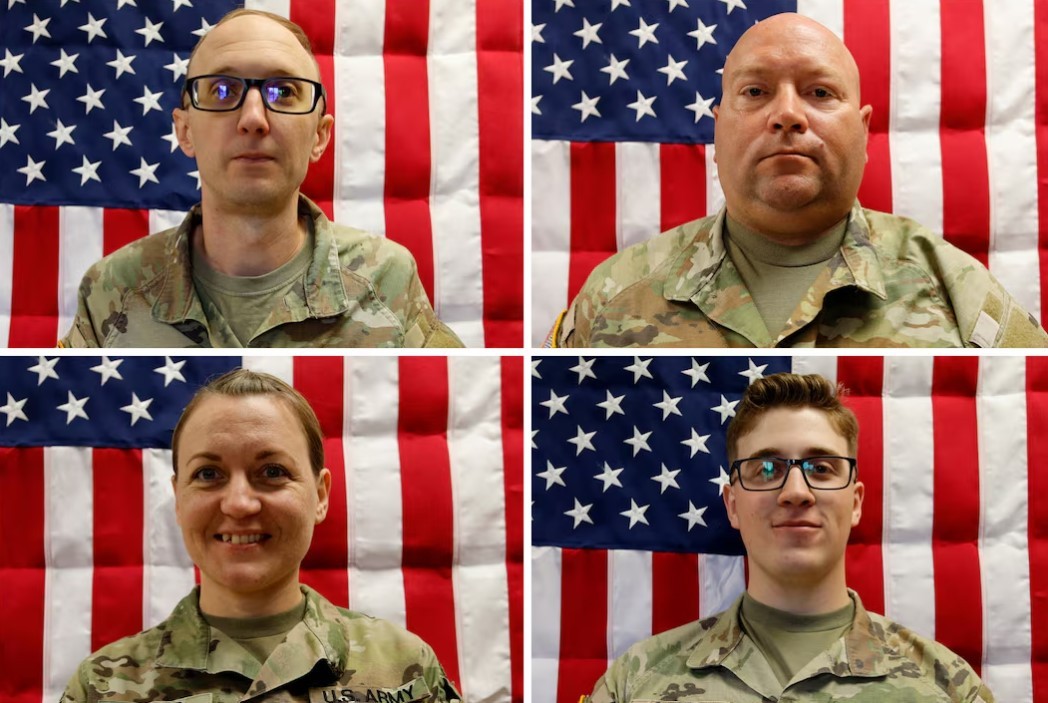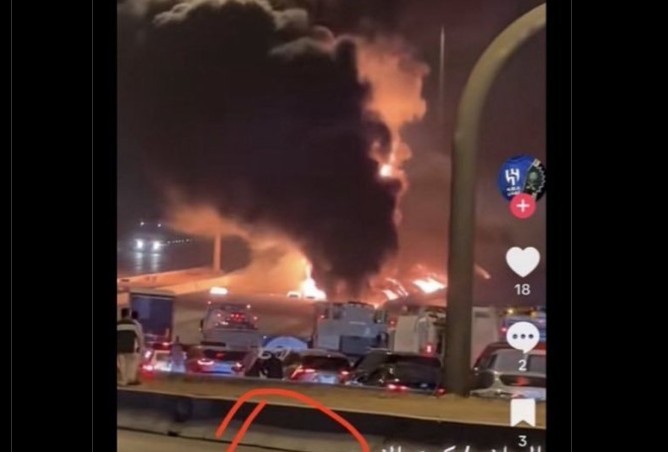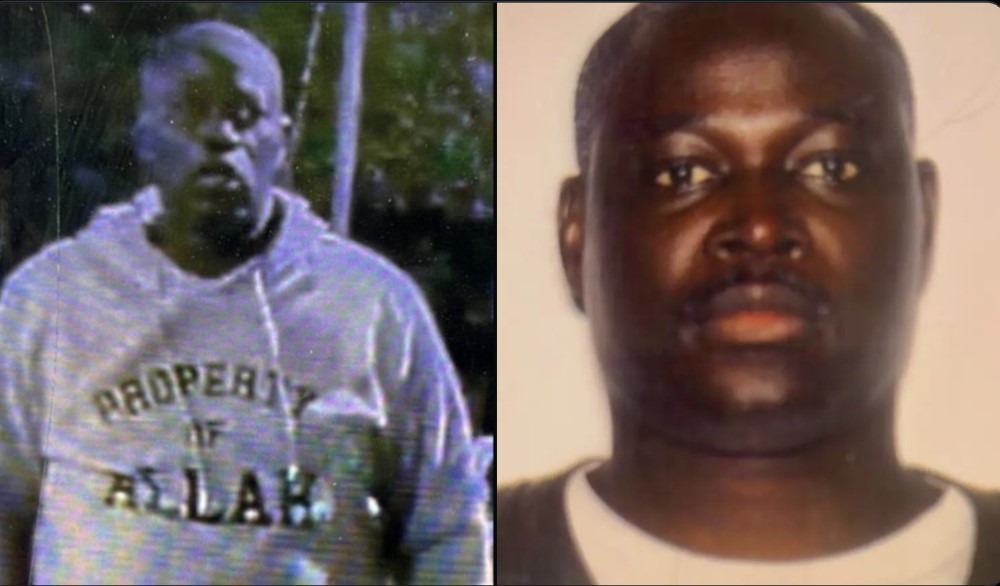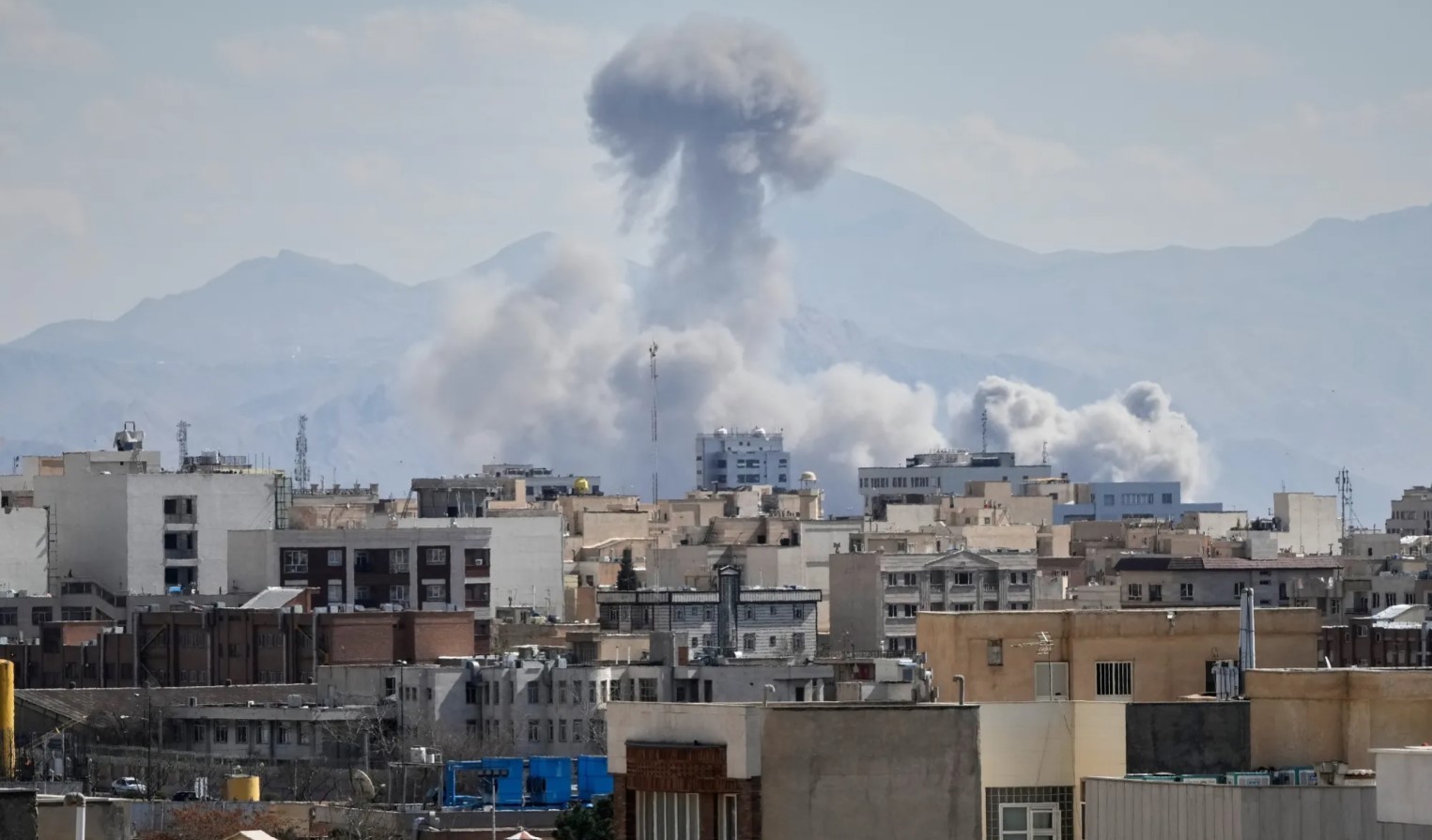New H‑1B Visa Fee Rule: Who Must Pay and Who Is Exempt
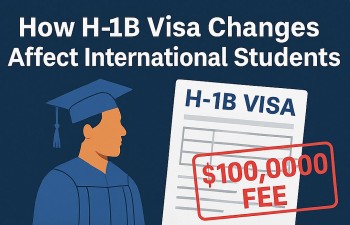 How H‑1B Visa Changes Impact International Students in 2025/2026 How H‑1B Visa Changes Impact International Students in 2025/2026 |
 How H‑1B Visa Changes Impact Workers in 2025/2026 How H‑1B Visa Changes Impact Workers in 2025/2026 |
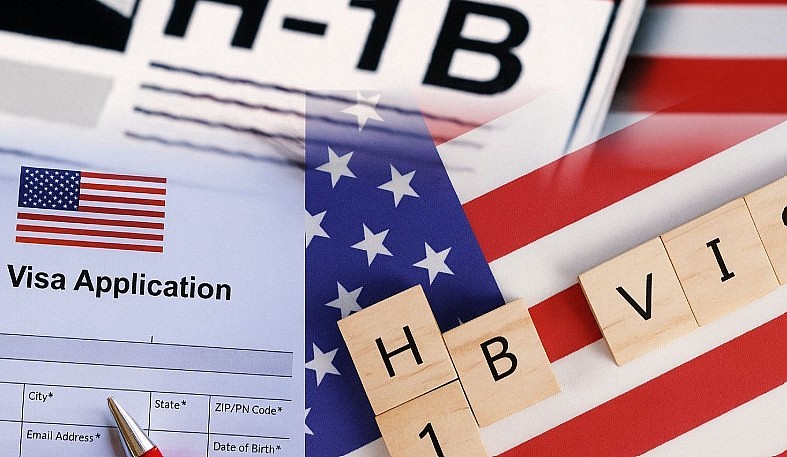 |
| Trump imposes a $100K annual fee on H-1B visas |
Following widespread confusion, the White House has released an official clarification outlining who the fee applies to, who is exempt, and how the rule will be enforced over the next 12 months.
Overview of the New Rule
The core change is a mandatory $100,000 payment required for employers filing new H‑1B petitions for foreign workers located outside the United States. This fee must be submitted along with the petition and is now a condition of visa processing for most first-time applicants under the H‑1B “specialty occupation” category.
-
Effective Date: The rule takes effect at 12:01 a.m. EDT on September 21, 2025.
-
Duration: It will remain in force for 12 months unless renewed or amended.
-
Applies To: New H‑1B petitions filed on behalf of foreign nationals who are outside the U.S. at the time of application.
-
Purpose: The stated goal is to protect the U.S. labor market by discouraging abuse of the H‑1B system and raising standards for foreign labor.
Who Is Exempt From the $100,000 H‑1B Fee
The White House has clarified several categories of individuals and employers that are not required to pay the new fee:
1. Current H‑1B Visa Holders Inside the U.S.
If the foreign worker is already in the U.S. under valid H‑1B status, the new fee does not apply.
2. Renewals, Extensions, and Transfers
Petitions for H‑1B renewals, extensions, or changes of employer within the U.S. are exempt from the $100,000 payment.
3. Previously Approved Visa Holders Re‑Entering
Individuals who already hold an approved H‑1B visa and are returning to the U.S. from travel abroad will not be subject to the fee, as long as they are re-entering under the same petition.
4. National Interest Exemptions
On a case-by-case basis, the Secretary of Homeland Security may waive the fee if admitting the foreign worker is considered to be in the national interest, and if it does not adversely impact wages or employment opportunities for U.S. workers.
Who Must Pay the New Fee
Employers and applicants falling into the following categories must comply with the new fee requirement:
1. New H‑1B Petitions for Workers Outside the U.S.
Any employer filing a new H‑1B petition for a foreign worker who is physically located outside the U.S. must pay the $100,000 fee at the time of petition.
2. Visa Applicants Seeking Initial Entry
Applicants currently outside the country and seeking initial admission under an H‑1B petition will be barred from entry unless the required fee has been paid.
3. U.S. Employers Filing From Abroad
If a U.S. employer initiates a petition from within the U.S. but the foreign beneficiary is located abroad, the rule still applies — the fee is mandatory.
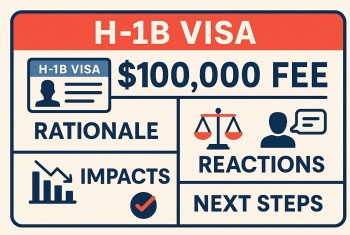 H‑1B Visa $100,000 Fee: What It Means, Who’s Affected, and Why It Matters H‑1B Visa $100,000 Fee: What It Means, Who’s Affected, and Why It Matters |
Clarifications to Avoid Common Misunderstandings
-
One-Time Payment: The $100,000 fee is not recurring. It applies once per petition, not annually.
-
Travel Status: The fee does not apply retroactively or to routine travel. An H‑1B holder traveling abroad who re-enters under an active petition does not need to pay again.
-
No Impact on Approved Lotteries: Individuals who were selected in the H‑1B lottery before the effective date, and who are now adjusting status from within the U.S., are not affected.
Why the Rule Matters: Implications for Employers and the Workforce
The new rule represents a significant financial burden, particularly for startups, small tech companies, and universities that rely on highly skilled foreign talent. Many business leaders have expressed concern that the fee may discourage global competitiveness and innovation.
At the same time, policymakers defending the rule argue it will protect U.S. jobs, raise the bar for foreign worker qualifications, and reduce overuse of the H‑1B program for low-cost labor.
Meanwhile, the Department of Labor has been directed to initiate rulemaking to raise prevailing wage levels, and the Department of Homeland Security is expected to prioritize higher-paid and higher-skilled applicants in visa adjudications.
What Employers and Applicants Should Do Now
With the rule now in effect, employers and foreign workers must act quickly to adapt:
-
Assess Petition Eligibility: Determine if the worker is inside or outside the U.S. to know if the fee applies.
-
Prepare for Compliance: Employers must retain documentation proving payment of the fee. Petitions may be denied without proof of compliance.
-
Seek Legal Counsel: Companies and individuals unsure about their status or eligibility for exemption should consult immigration attorneys, particularly for complex or high-risk cases.
-
Monitor Policy Updates: Federal agencies are expected to release more details in coming weeks. Stakeholders should closely follow updates from the Departments of State, Homeland Security, and Labor.
Conclusion
The $100,000 H‑1B petition fee marks a major shift in U.S. immigration policy, aiming to tighten access to foreign labor while protecting domestic workers. Though the White House has issued detailed clarifications to limit confusion, the rule remains highly controversial and is likely to face legal and political challenges.
Employers and prospective applicants — especially those based outside the U.S. — must act decisively to comply, understand their obligations, and explore any exemptions that may apply to their case.
Frequently Asked Questions (FAQs)
1. Does the $100,000 fee apply to all H‑1B visa holders?
No. The fee only applies to new H‑1B petitions filed for workers outside the United States. If you’re already in the U.S. under valid H‑1B status, the fee does not apply.
2. Is the $100,000 H‑1B fee a one-time or annual cost?
It is a one-time payment required at the time of filing a new petition. It is not a recurring annual fee.
3. Are H‑1B renewals or extensions subject to the new fee?
No. Petitions for renewals, extensions, or changes of employer filed within the U.S. are exempt from the $100,000 payment.
4. What happens if an employer fails to pay the fee?
Failure to submit the fee may result in denial of the petition and inadmissibility of the foreign worker at the border. The petition will be considered noncompliant.
5. Can the fee be waived or reduced?
Possibly. The Secretary of Homeland Security may grant exemptions on a case-by-case basis if it is determined to be in the national interest and does not threaten U.S. labor conditions.
6. Does this policy affect H‑1B visa lottery selections?
No. If you were selected in the H‑1B lottery and are applying for a change of status from within the U.S., this fee does not apply to you.
7. Will this rule affect travel for existing H‑1B holders?
No. If you already have a valid H‑1B visa and are returning from temporary travel, you are not subject to the fee as long as your status remains unchanged.
8. Is premium processing still available under this rule?
Yes. The $100,000 fee is separate from any premium processing service fees. You can still file for expedited processing if eligible.
9. When does the rule expire?
The proclamation is set to remain in effect for 12 months, but may be extended, modified, or revoked based on administrative review.
10. Where can employers find official guidance?
Employers should monitor announcements from the Department of Homeland Security, Department of State, and U.S. Citizenship and Immigration Services (USCIS) for updates and procedures.
 What Are the New U.S. Visa Interview Rules in 2025? Don’t Miss These Visa Changes What Are the New U.S. Visa Interview Rules in 2025? Don’t Miss These Visa Changes Planning a trip to the United States after April 2025? You’ll want to pay close attention. |
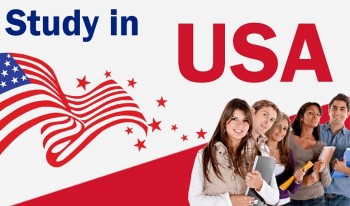 Fact Check: New U.S. Policy on Terminating International Students’ Legal Status Fact Check: New U.S. Policy on Terminating International Students’ Legal Status In early 2025, a U.S. government policy targeting thousands of international students shocked the higher education community. |
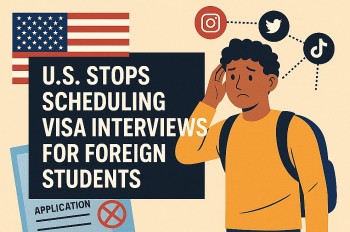 U.S. Halts Student Visa Interviews: What This Means and How to Prepare U.S. Halts Student Visa Interviews: What This Means and How to Prepare The U.S. has suspended new student visa interviews to expand social media vetting. This update affects thousands of international applicants. Learn what it means, who’s ... |
 How Many Chinese Students Are in the U.S.? Latest Numbers, Visa Crackdowns, and What’s Next How Many Chinese Students Are in the U.S.? Latest Numbers, Visa Crackdowns, and What’s Next Chinese students have long been a significant presence in American universities, contributing to academic excellence and cultural diversity. |

